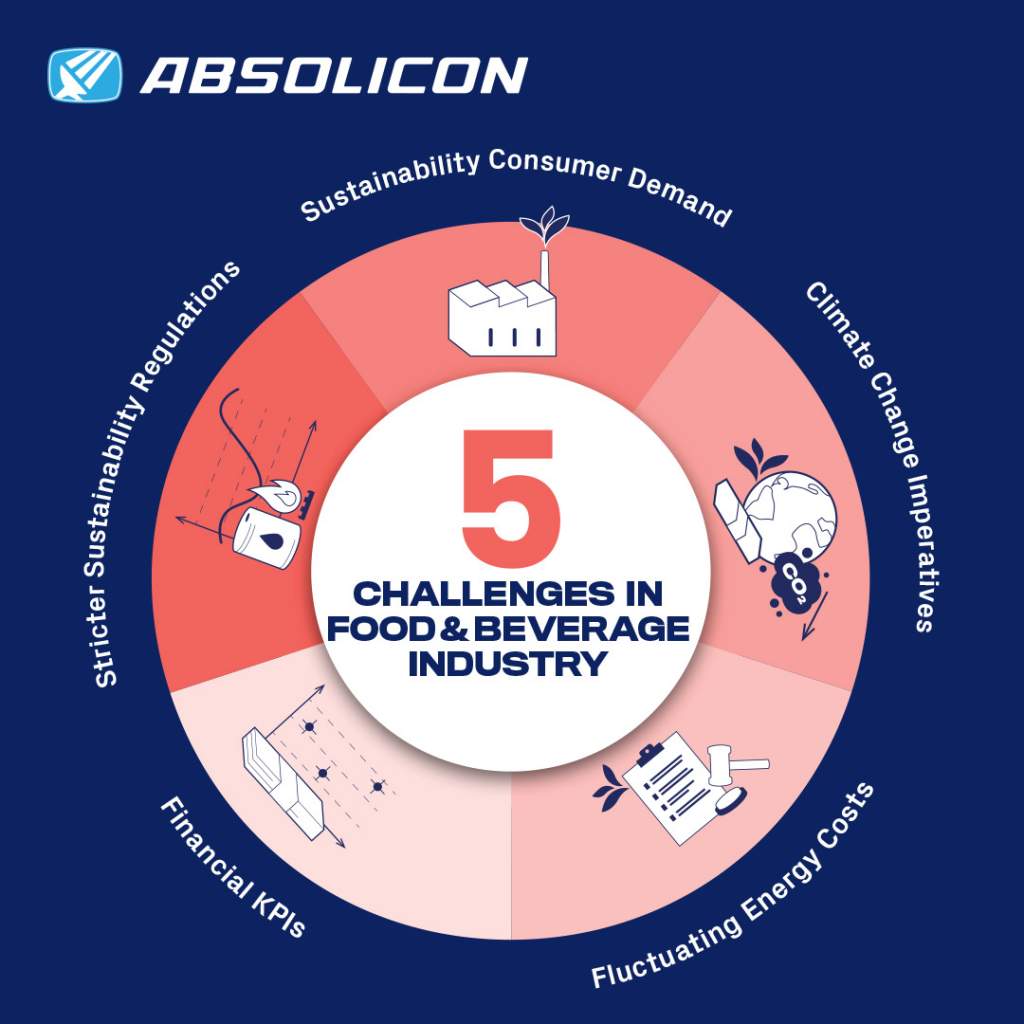Latest News:
2024-01-29
In an era where gastronomy meets global responsibility, the food and beverage industry faces a number of challenges that demand innovative solutions. From the farm to the table, the sector is grappling with issues ranging from environmental concerns to financial complexities.

Climate change is no longer a distant threat but a tangible reality, and the food and beverage industry finds itself at the forefront of this battle. Unpredictable weather patterns, extreme events, and shifting agricultural zones are disrupting supply chains and challenging the very foundations of how we produce and consume food. Farmers, suppliers, and manufacturers must adapt to these changes, exploring sustainable farming practices, resilient crop varieties, and transtitioning to renewable energy solutions to mitigate their environmental impact. The food and beverage industry is currently a major contributor to the greenhouse effect, accounting for more than one-third of global emissions. As a result, many companies in the sector have ambitious climate goals to reduce their Scope 1. 2 and 3 emissions and achieve Net Zero.
As the global energy landscape undergoes rapid transformations, the food and beverage industry is caught in the crossfire of fluctuating energy costs. From energy-intensive processes such as heating, cooling, and refrigeration to transportation, energy is a critical component of the entire supply chain. In response, these companies are exploring alternative energy sources to transition to more reliable and independent energy sources, to build resilience to energy price and availability volatility and reduce fossil fuel dependence.
Governments and regulatory bodies worldwide are tightening the reins on sustainability standards, forcing businesses in the food and beverage sector to reevaluate their practices. From waste management to emissions control, compliance with stringent regulations is not just a legal obligation but a key factor in maintaining consumer trust. Companies are investing in transparent supply chains, eco-friendly packaging, and renewable energy solutions to align with evolving sustainability standards such as The European Green Deal and Fit for 55.
The financial landscape is a constant challenge for businesses, and the food and beverage industry is no exception. Rising production costs, market volatility, and the need for continuous innovation present financial challenges that require astute management. Companies must focus on key financial performance indicators, implement cost-saving measures, and diversify revenue streams to remain resilient in the face of economic uncertainties.
Consumers are increasingly making choices based on ethical considerations, and the food and beverage industry is witnessing a surge in demand for sustainable and responsibly sourced products. Meeting these expectations is not just a moral imperative but a strategic necessity. Companies are responding by embracing transparency, adopting ethical sourcing practices, and communicating their sustainability initiatives to build brand loyalty among conscious consumers.
In conclusion, the food and beverage industry is navigating a complex landscape shaped by climate change, financial dynamics, and evolving consumer expectations. Successfully addressing these challenges requires a holistic approach that blends innovation, sustainability, and strategic management. As the industry adapts, it has the opportunity to not only overcome these hurdles but also emerge as a beacon of responsible and resilient business practices.
Want to learn more how to tackle these challenges?